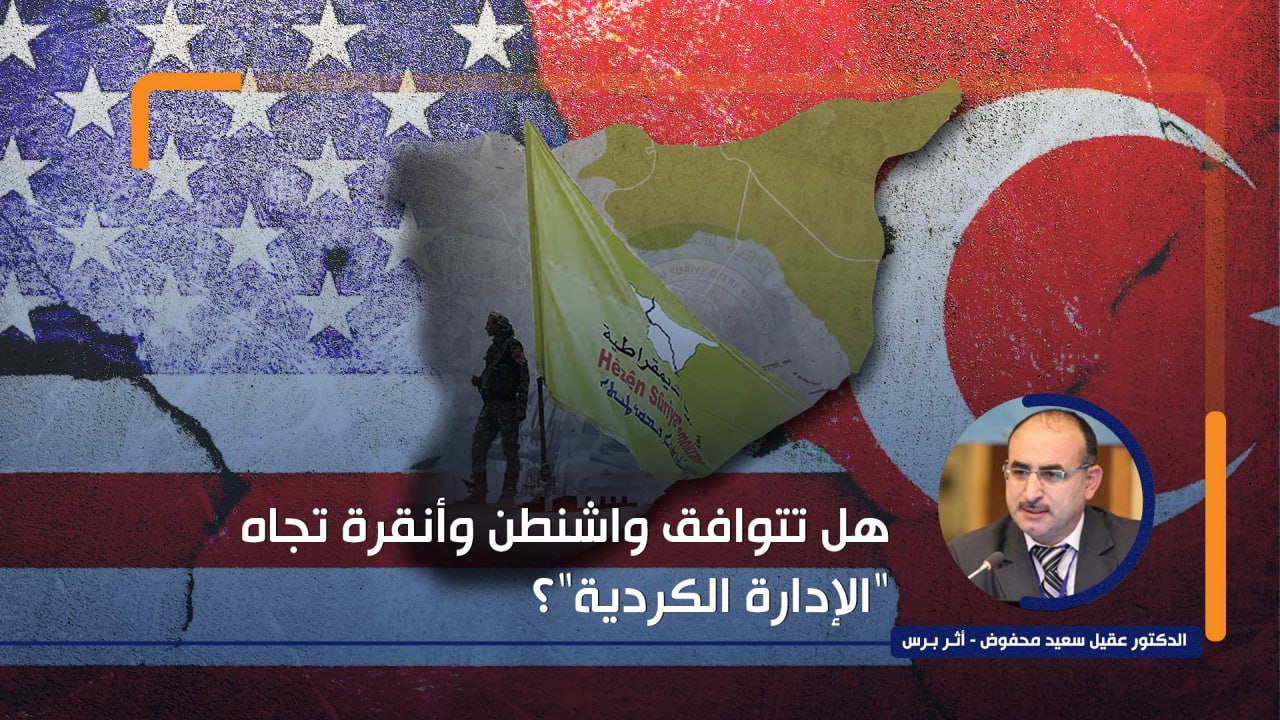The U.S. presence in the Syrian Jazira region and along the Euphrates line, coupled with Washington’s support for the Autonomous Administration and the Syrian Democratic Forces (SDF), remains a persistent point of contention between Ankara and Washington. Turkish officials highlighted during the U.S.-Turkish Strategic Mechanism meetings in Washington in early March that the issue of the SDF and the Autonomous Administration is a focal point of disagreement between the two countries. While Ankara does not explicitly call for a U.S. withdrawal from eastern Syria, it seeks alignment of the U.S. presence with Ankara’s broader priorities in Syria, rather than solely focusing on the Kurds and the Autonomous Administration.
The direct U.S. military involvement in Syria, particularly through support for the People’s Protection Units of the Democratic Union Party (PYD), went against Ankara’s expectations. Despite benefiting from this intervention, Ankara has expanded its direct and indirect influence in several portions of northern and northwestern Syria, including areas such as Afrin and Ras al-Ain that were previously under Kurdish control. This expansion wouldn’t have been feasible without tacit agreements between Ankara, Washington, and other involved parties.
Ankara tends to exaggerate differences in rhetoric, media portrayal, and political stance with Washington, especially regarding the Kurdish question. However, it often remains silent on points of agreement, including aspects of the Kurdish issue itself. Conversely, Washington seeks to downplay areas of disagreement and urges Ankara to understand its priorities concerning the overall Kurdish administration in Syria.
Turkey: That’s What We Want From Normalization with Syrian Regime
While Ankara views Kurdish forces as adversaries, it has engaged in efforts to establish understandings and agreements with them, demonstrating a nuanced approach. Ankara does not oppose a Kurdish-led “Kurdish entity” or ” Autonomous Administration” akin to that in northern Iraq, provided it aligns with Ankara’s interests.
Presently, Ankara, in coordination with Washington, aims to foster conditions conducive to consensus between SDF-controlled areas in the northeast and areas controlled by Turkey and its allied militias, including Jabhat al-Nusra, in northwestern Syria. Despite ongoing tensions, some SDF and Autonomous Administration officials express willingness to cooperate with Turkey-controlled areas, as reiterated by Mazloum Abdi, the SDF leader.
There is evident coordination between Ankara and Washington concerning the Autonomous Administration, including attacks on SDF installations and infrastructure in the Jazira region. Ankara’s relentless attacks, targeting essential infrastructure and resources, aim to render the Jazira region inhospitable and deplete the Autonomous Administration’s capabilities to sustain itself. Despite knowing these tactics, the SDF finds it increasingly challenging to counter them, with the United States not actively supporting the SDF in this regard.
Growing concerns and possibly resentment among Kurdish leaders and cadres stem from the U.S. stance on Turkish aggression and tactics. However, they face limitations in openly protesting to Washington about these developments.
While there exists a disparity in relative power and priorities between Ankara and Washington, their approach towards the Kurds and the Autonomous Administration reflects a deep and enduring alliance. In contrast, the relationship between Washington and the SDF resembles an “emergency alliance” with a temporary nature, shaping the trajectory of the Autonomous Administration.
As the SDF continues to offer concessions to the United States, its own bargaining power diminishes. Delays in progress on the Qamishli-Damascus road and increased Turkish aggression likely stem from entrenched understandings between Ankara and Washington.
This article was translated and edited by The Syrian Observer. The Syrian Observer has not verified the content of this story. Responsibility for the information and views set out in this article lies entirely with the author.


